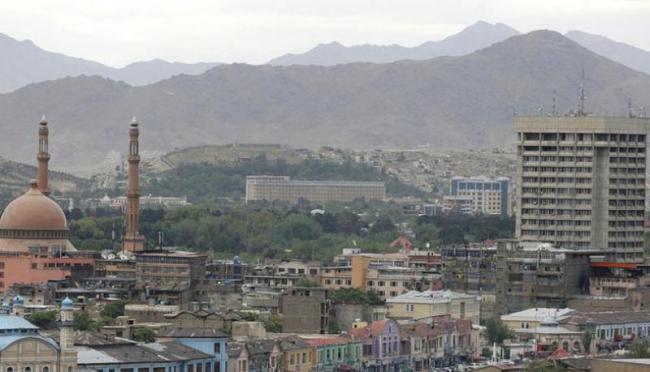
Amnesty International pays tribute to slain Afghan journalists on World Press Freedom Day
Kabul, May 3 (IBNS): Journalists in Afghanistan face threats, intimidation and violence for simply doing their jobs, Amnesty International said on World Press Freedom Day as it honoured the memory of the 10 Afghan journalists killed in horrific attacks this week.
Against the backdrop of unrelenting violence, a double bombing in Kabul and a shooting in Khost on Monday marked the deadliest day for journalists since the conflict in Afghanistan began in 2001. The Kabul bombings killed 29 people and wounded 45 others.
“Afghanistan’s journalists are among the bravest in the world. Working in some of the most difficult conditions, they have faced threats, intimidation and violence for simply doing their jobs. At a time when many have sadly turned their attentions away from the country, and the work of a journalist means constantly putting your life at risk, they have continued to confront injustice and give voice to victims,” said Omar Waraich, Amnesty International’s Deputy Director for South Asia.
Nine of the journalists killed had rushed to the site of bombing in Kabul during rush hour. A second bomber, posing as a journalist and presenting a fake press card, worked his way towards a crowd of journalists before detonating his device. The survivors put down their cameras and their equipment to help the victims around them.
The second attacker deliberately sought out journalists to kill after the first bomber had drawn them to the scene. Mere moments after killing one group of civilians they targeted another, committing multiple war crimes on the same spot,” said Omar Waraich.
Afghanistan’s journalists had barely registered the Kabul tragedy that robbed them of some of their finest colleagues when news came that Ahmad Shah, a reporter for BBC Afghan, had been shot dead in Khost province, near the border with Pakistan.
According to the Afghanistan Journalists Safety Committee, at least 80 media workers have lost their lives while working in the country since 2001.
Journalists killed
The 10 journalists included Shah Marai, the legendary AFP photographer, who had powerfully captured the tragic aftermath of several attacks in Afghanistan until he was killed in one of them. He was the father of six children, the youngest, a daughter, who was born just a fortnight ago.
Yar Mohammad Tokhi worked for TOLO TV – a fiercely independent Afghan television station that has mourned colleagues before, including after a 2016 bombing that killed seven staff members and wounded 26 others. When Yar Mohammad Tokhi's loved ones laid him to rest, they discovered on his person a blood-stained wedding band. He was due to be married next month.
Mahram Durani, a producer and presenter with Salam Watandar radio, was one of Afghanistan’s rising generation of women journalists. Ebadullah Hananzai was also a radio journalist, working for Radio Azadi. Ghazi Rasooli was a reporter with 1TV, and Nowroz Ali Rajabi was a cameraman for the same media organization. Saleem Talash was a reporter and Ali Saleemi was a cameraman with Mashal TV. Sabawoon Kakar was a journalist with Radio Azadi.
Civilian casualties
Monday’s killings represent the latest in a series of unremitting attacks on civilians in Afghanistan. A week earlier, 60 people were killed as they waited at a voter registration centre in Kabul.
For each of the past four years, more than 10,000 people have been killed or injured in attacks in Afghanistan, according to the United Nations Assistance Mission in Afghanistan. These attacks have taken place all across the country, with the capital Kabul being the hardest hit.
They have included brazen war crimes, such as when the Taliban claimed responsibility for an attack that killed more than 100 people and wounded at least 235 when an ambulance laden with explosives struck the busy Kabul shopping area known as Chicken Street on 25 January 2018.
Civilians have also been victims of attacks by government forces. On 2 April, an Afghan military strike killed at least 70 people and wounded 30 others when it struck a mosque in the northern province of Kunduz.
At the same time, Afghans continue to be forcibly returned, violating the principle of non-refoulement: under international law, people cannot be sent back to a country where are at risk of serious human rights violations.
European countries continue to force thousands of Afghans back to danger. Last week, Turkey boasted of its target of 10,000 deportations to Afghanistan, in a matter of a few weeks.
“There is no one who can credibly claim that Afghanistan is safe. And yet we see European, Turkish, Iranian and Pakistani governments persist with the forcible returns of Afghans, turning their backs on the country’s suffering while putting people in harm’s way,” said Omar Waraich.
Text: Amnesty International
Support Our Journalism
We cannot do without you.. your contribution supports unbiased journalism
IBNS is not driven by any ism- not wokeism, not racism, not skewed secularism, not hyper right-wing or left liberal ideals, nor by any hardline religious beliefs or hyper nationalism. We want to serve you good old objective news, as they are. We do not judge or preach. We let people decide for themselves. We only try to present factual and well-sourced news.







